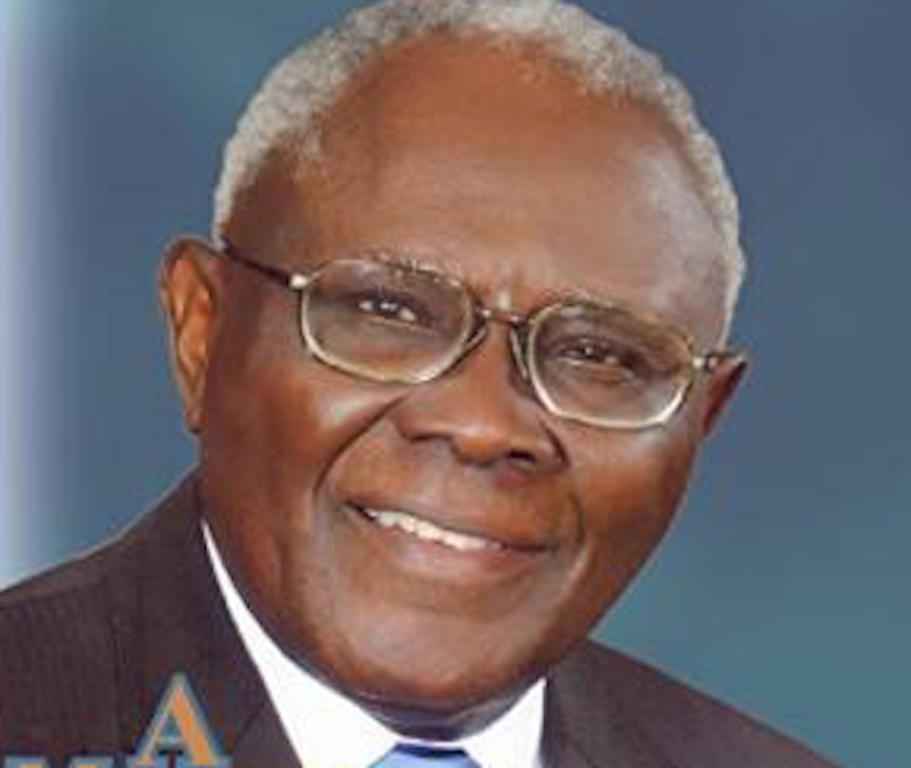Famed geographer and Professor Emeritus, Akin Mabogunje, will be celebrating his 90th year in October. It will be an occasion for his family, his relations and grateful students worldwide to roll out the red carpet, once more, for him to step on. I said, worldwide, without any hesitation because I only tripped on that awareness myself in a personal way. I did not know the extent of his international renown till when I went to Swansea University, UK, in 1979 for a Master’s degree in Regional Development Planning and found that Mabogunje’s works were part of the recommended readings.
When I came to know more about him later in life, I found out that even as early as 1971 or thereabout Mabogunje had been a visiting professor in many universities across the United Kingdom as well as some Swedish universities.
- Jos crisis: Call for sack of GOC 3 division distraction to peace in Plateau – Army
- Buhari orders creation of farm estates in all senatorial districts
Here in Nigeria, anybody that has been acquainted with the field of geography and where it is applied, particularly in areas of regional and town planning, must have come across Mabogunje. He has been the dominant national figure in the field. His books on the subject have been widely read in universities as well as in secondary schools. Across the continent here, he is reputed to be the first black African to earn a PhD in the subject and also the first to become a Professor of Geography, thus earning the sobriquet, the Father of African Geography.
What readers might find unique about Mabogunje and probably why he is so admired could be the abundant energy he carries his massive knowledge of geography into the realms of general human concerns. And it was exactly this that Mabogunje brought to the realization of Abuja as a Federal Capital City (FCT). When the military regime led by General Murtala Mohammed decided in 1975 to shift Nigeria’s capital, Lagos, to a more central location in the country, the government found that it knew very little about the virgin land that constituted most of the new area.
Professor Mabogunje was tasked with leading the team of scientists mostly from the universities that scoured the area to provide vital information on the ecological condition of the new territory. This information included flora and fauna, land use, census of the human population, people to be displaced, range of their assets and compensation to be paid, etc.
It was a back-breaking two-year assignment that would take him to the wilderness that later become the FCT, on a regular weekly basis from his base in Ibadan. Interestingly he had hands of assistance from Commander Murtala Nyako, then Military Governor of a freshly created Niger State who gave him a base in Minna and attached a senior administrative officer, Awwal Ibrahim as anchor and guide. In a few years ahead Awwal Ibrahim was also to become the civilian Governor of Niger State in 1979 and is today the Emir of Suleja. Obviously, it is the success of this intense preparatory work that is clearly evident in what is Abuja today.
Professor Mabogunje has always been a bridge of sorts between the university and the locals in the city, the town and gown, with a vision to use his knowledge of geography in the service of rural communities and the nation in general. His advice, in that regard, is always highly valued by successive governments of the federation. He is reputed to be the brain behind the creation of the Directorate of Foods, Roads and Rural Infrastructure (DFRRI) in 1986 which was set up to provide social and economic infrastructure in the rural areas. He remained a key player in DFFRI until 1990 when another of his ideas metamorphosed into the Board of Community Banks. I came to see him at close range there because my two close friends and campus mates, Zakari Isa Chawai and Abubakar Bukari were working directly with him in the headquarters of the Board of Community Banks in Abuja.
Professor Mabogunje was a tireless promoter of community banking, touring all nooks and corners of the country. The idea caught on like bush fire, and by the time he resigned from the Board in 1994 over 1300 community banks have been established all over the country. Today those community banks have become the cornerstones of micro-finance banks. Thereafter he was very much sought after to chair commissions, committees and panels which in one way or the other were always associated with urban and regional planning.
The Presidential Technical Committee on Land in Nigeria which he has been chairing since 2009 is probably still an outstanding assignment.
Professor Mabogunje has received far too many awards in his lifetime to allow mention in this short piece. But I guess one award that should be close to his heart would be that of the Vautrin-Lud Prize of 2017.
It is the highest honour in the field of geography and is highly coveted. It is probably why it is referred to as The Nobel Prize of Geography. Since the prize was instituted in 1991, Professor Mabogunje is the first African to be named a recipient.
Now, the FCT where he did a lot of the groundbreaking work, should be counted among those that have honoured him.

 Join Daily Trust WhatsApp Community For Quick Access To News and Happenings Around You.
Join Daily Trust WhatsApp Community For Quick Access To News and Happenings Around You.


